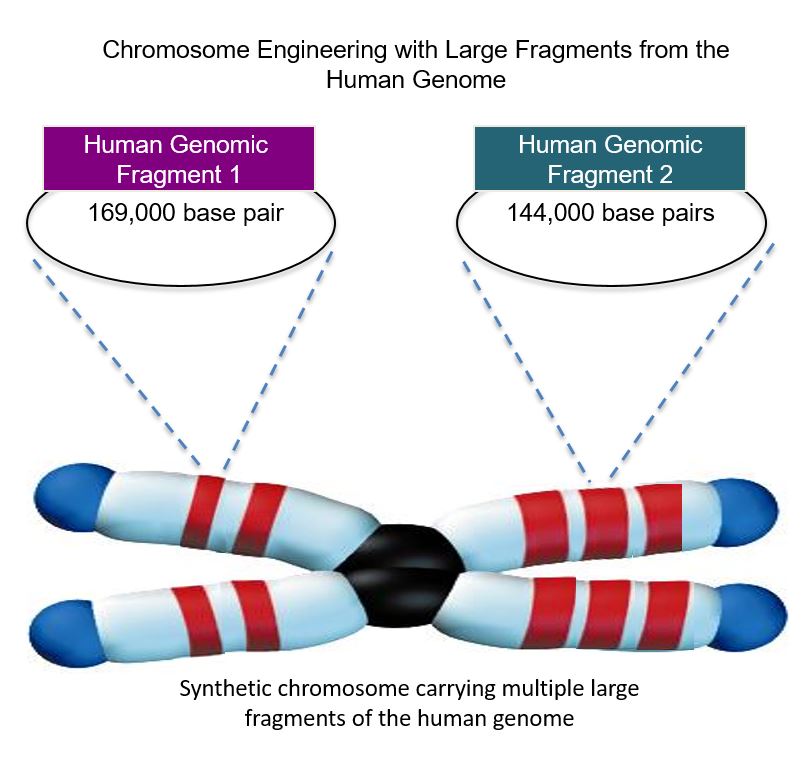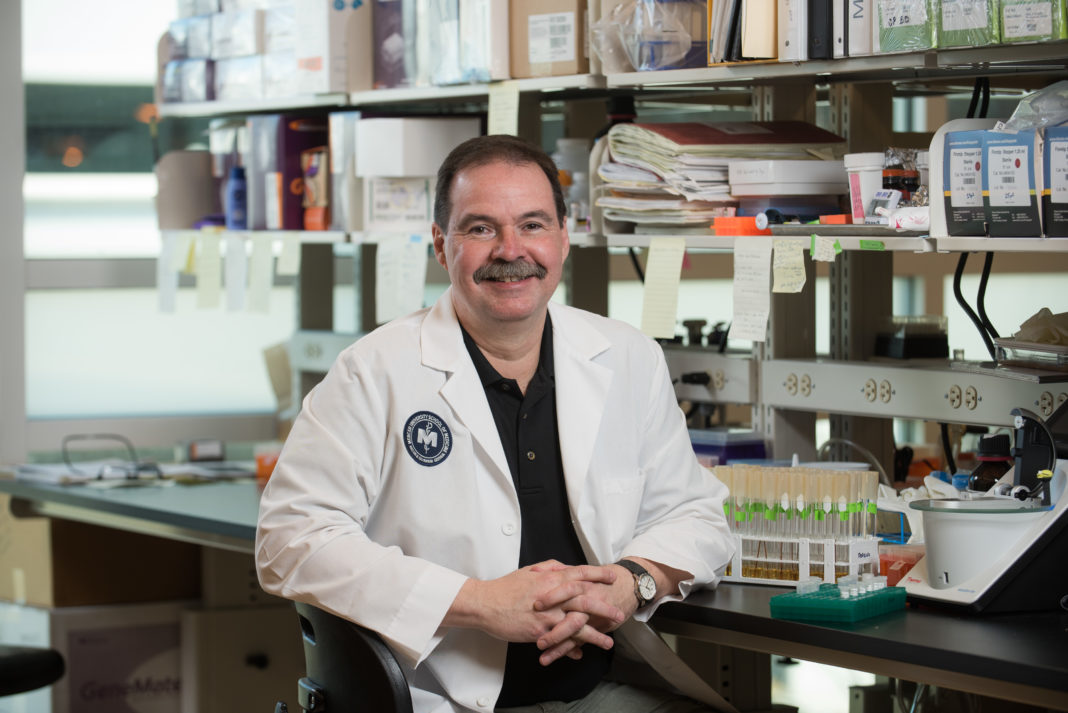Dr. Edward Perkins is a builder and an engineer, but probably not the kind you’re thinking of. Developing synthetic chromosomes is the life work of this Mercer University School of Medicine professor.
For the past 15 years, he’s been working on developing a synthetic chromosome loaded with cancer-fighting proteins that can be put back into a patient’s bone marrow cells to tackle the disease. His lab is one of the few in the world pursuing this path.
“We developed the ability to take large fragments of our human genome, large pieces of DNA, and combine them together all in one chromosome. It’s an engineering trick where we can handle large portions of our genomes and put them in a chromosome,” Dr. Perkins said.
His dive into the field of cell-based gene therapy began almost 20 years ago following his post-doctoral work at the National Institutes of Health. After first working in Vancouver, he continued his passion as a faculty member at the University of Minnesota School of Medicine and joined the faculty at Mercer School of Medicine’s Savannah campus 12 years ago.

The majority of diseases, including cancer and neurodegenerative disorders, are caused by the mutation of genes. While most current gene therapies address single gene defects, Dr. Perkins’ lab is focusing on making corrections in multiple genes at once. The vast majority of genetic-based diseases are due to mutations in multiple genes in our genome.
“It’s like being able to put more stuff on a computer chip. We’re developing the technology to put more circuits on a genetic chip. The more circuits you can put on the chip, the more functions that can be carried out,” he said.
The whole field of gene therapy has really taken off over the past couple years, and there have been positive results in treating blood disorders.
“We’re really entering an era where we’re going to start seeing a lot more treatment based on engineering our own cells and introducing them back into patients. We’re entering a golden age,” he said.
Dr. Perkins has received research funding in recent years from two grants from the National Institutes of Health. In addition, he and former School of Medicine professor Dr. Amy Greene received two grants from the U.S. Defense Advanced Research Projects Agency (DARPA) that allowed for the startup of the company SynPloid Biotek. Clinical trials for cancer treatment will be conducted through the company, which has since merged with clinical/translational researchers from Karolinska University Hospital in Stockholm to become CarryGenes Therapeutics.
Dr. Perkins said his team is always trying to improve the ability to put their chromosomes into stem cells, and right now, they are working on delivering engineered synthetic chromosomes into reprogrammed stem cells for broad use in treating complex human genetic diseases. In addition, his team is working on increasing the efficiency by which large, complex genetic circuits are bioengineered onto synthetic chromosomes.
Dr. Perkins’ long-term goal is to provide a novel and robust genetic platform to the research and clinical community for next generation cell-based therapies.










